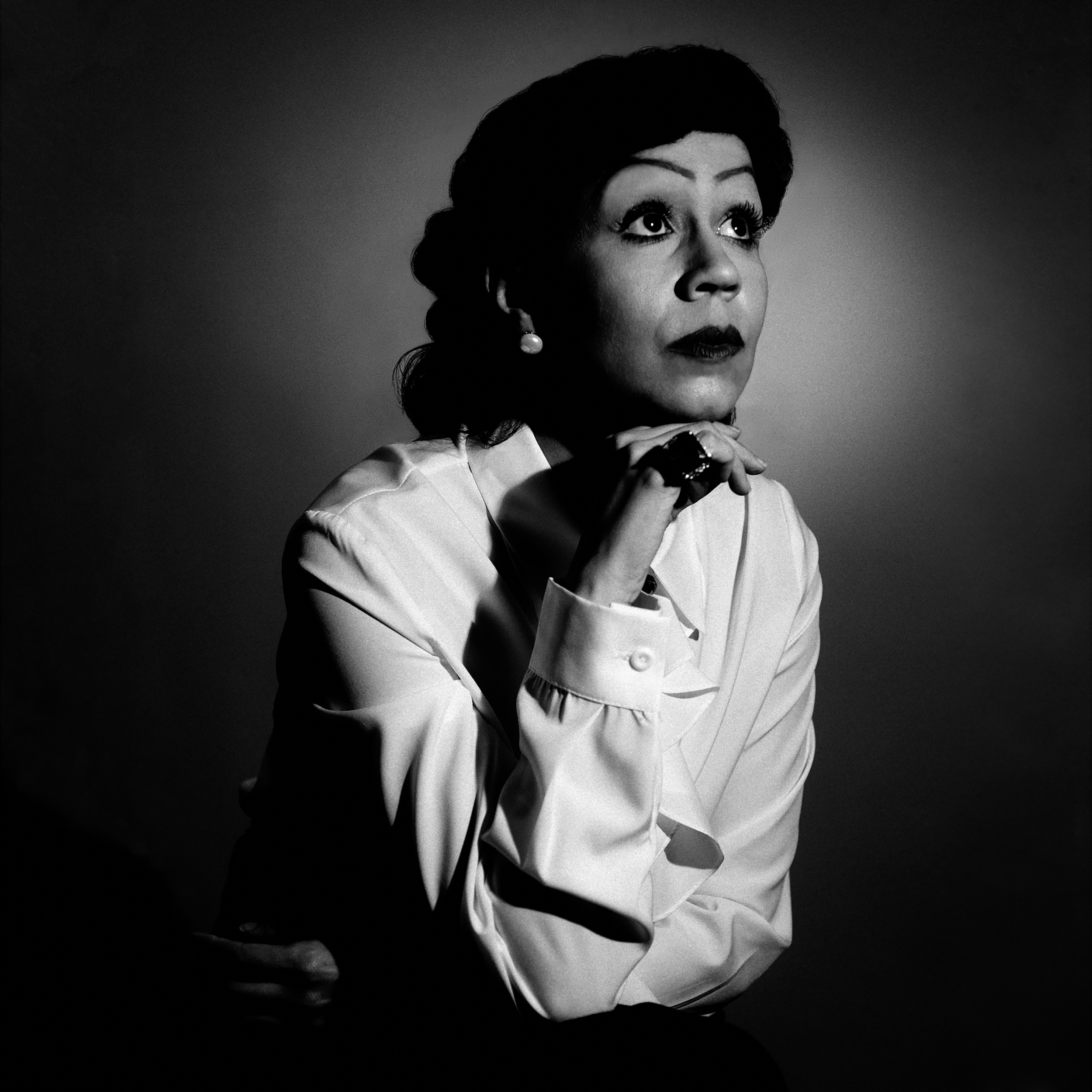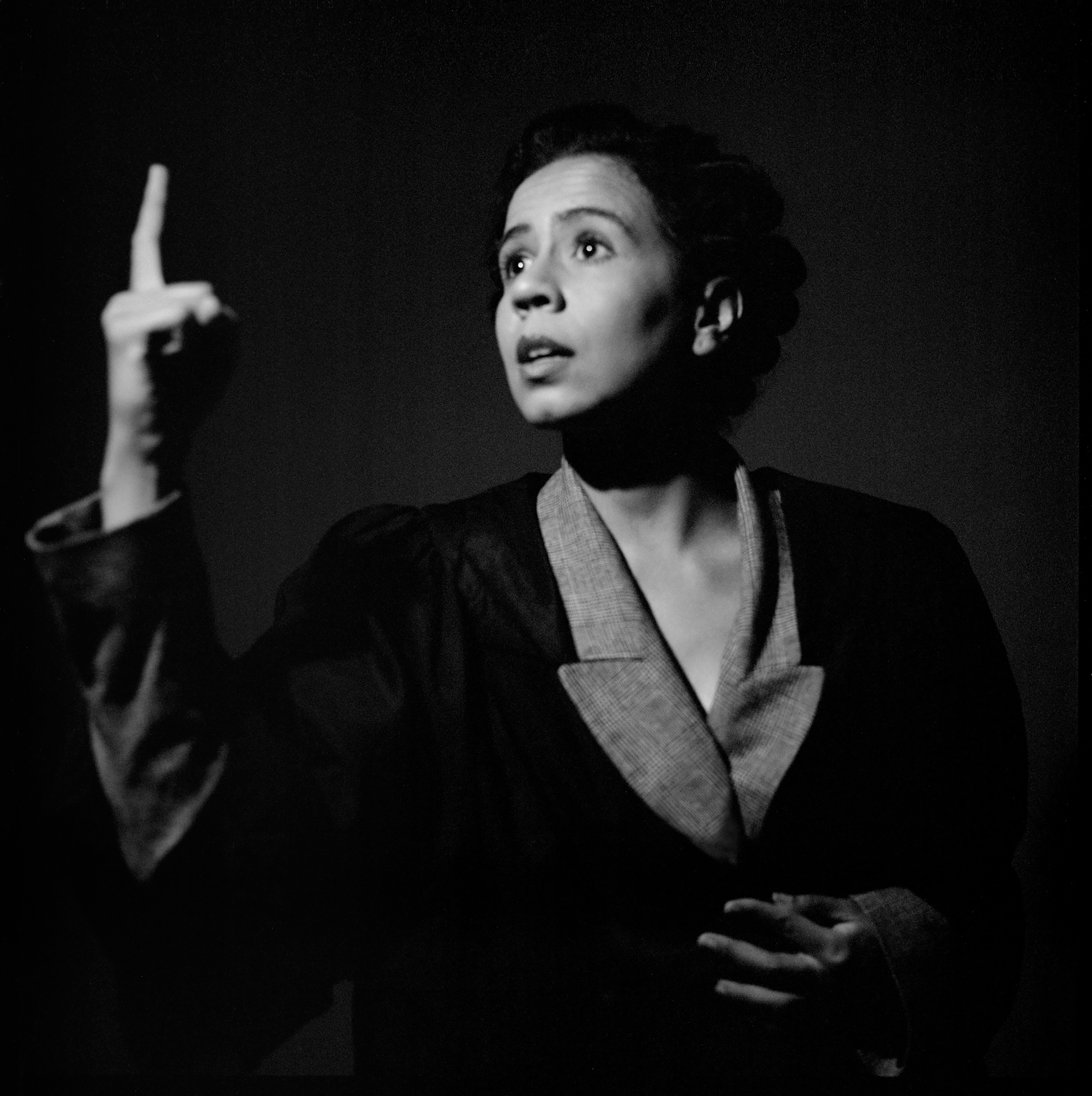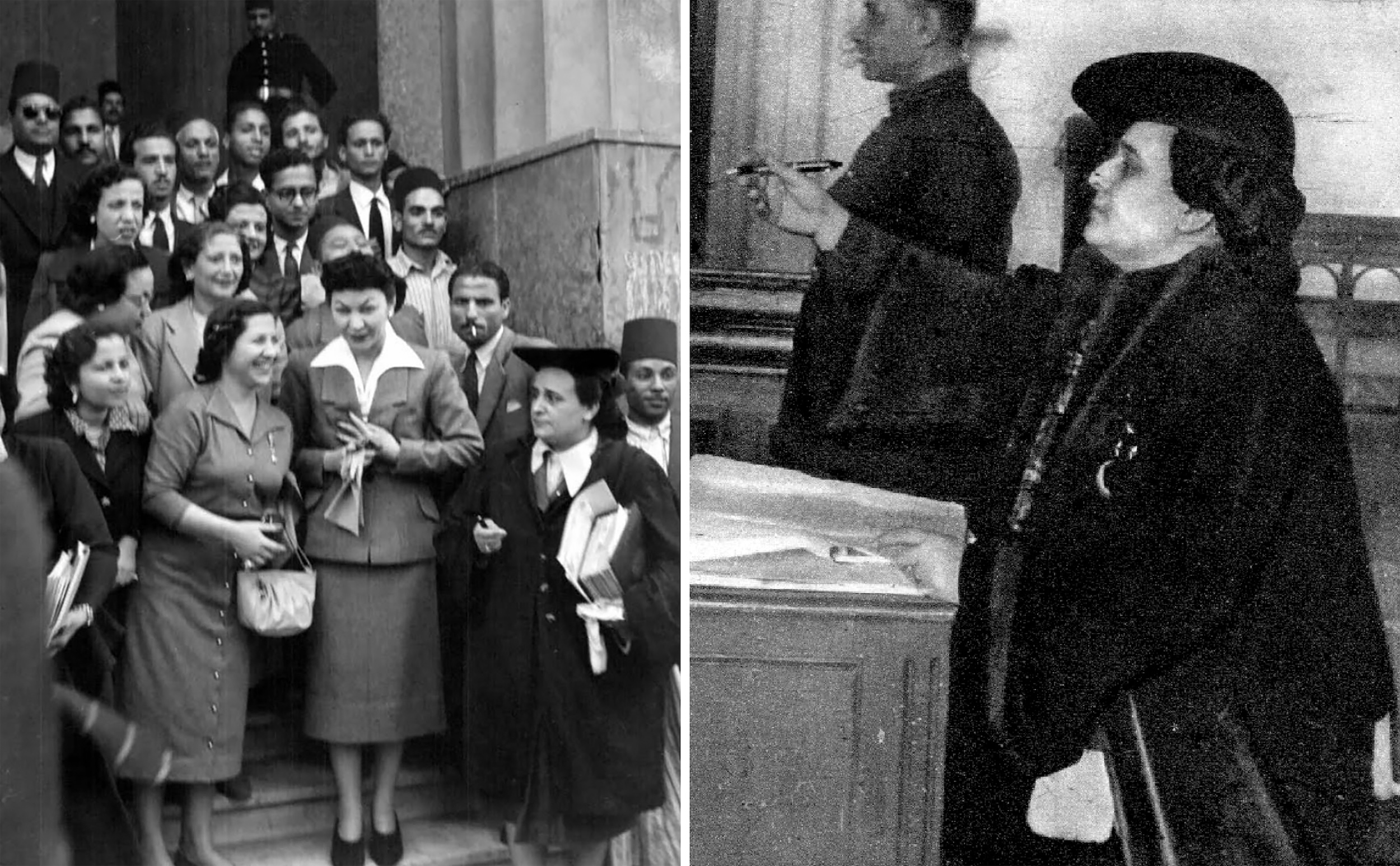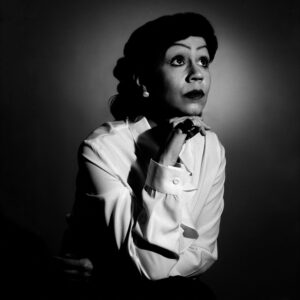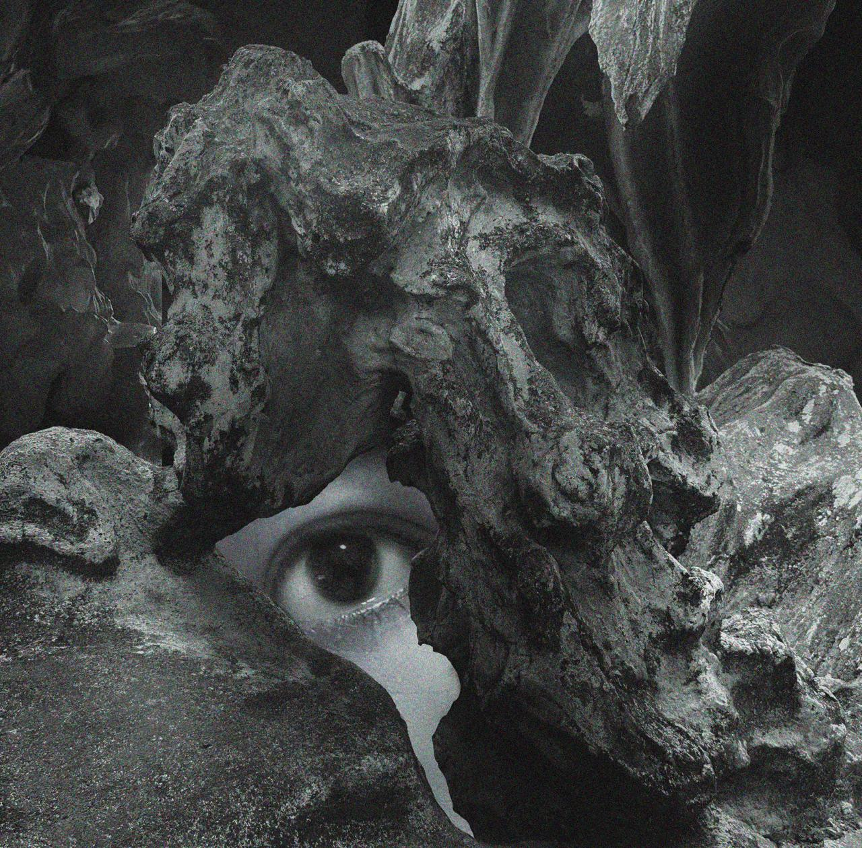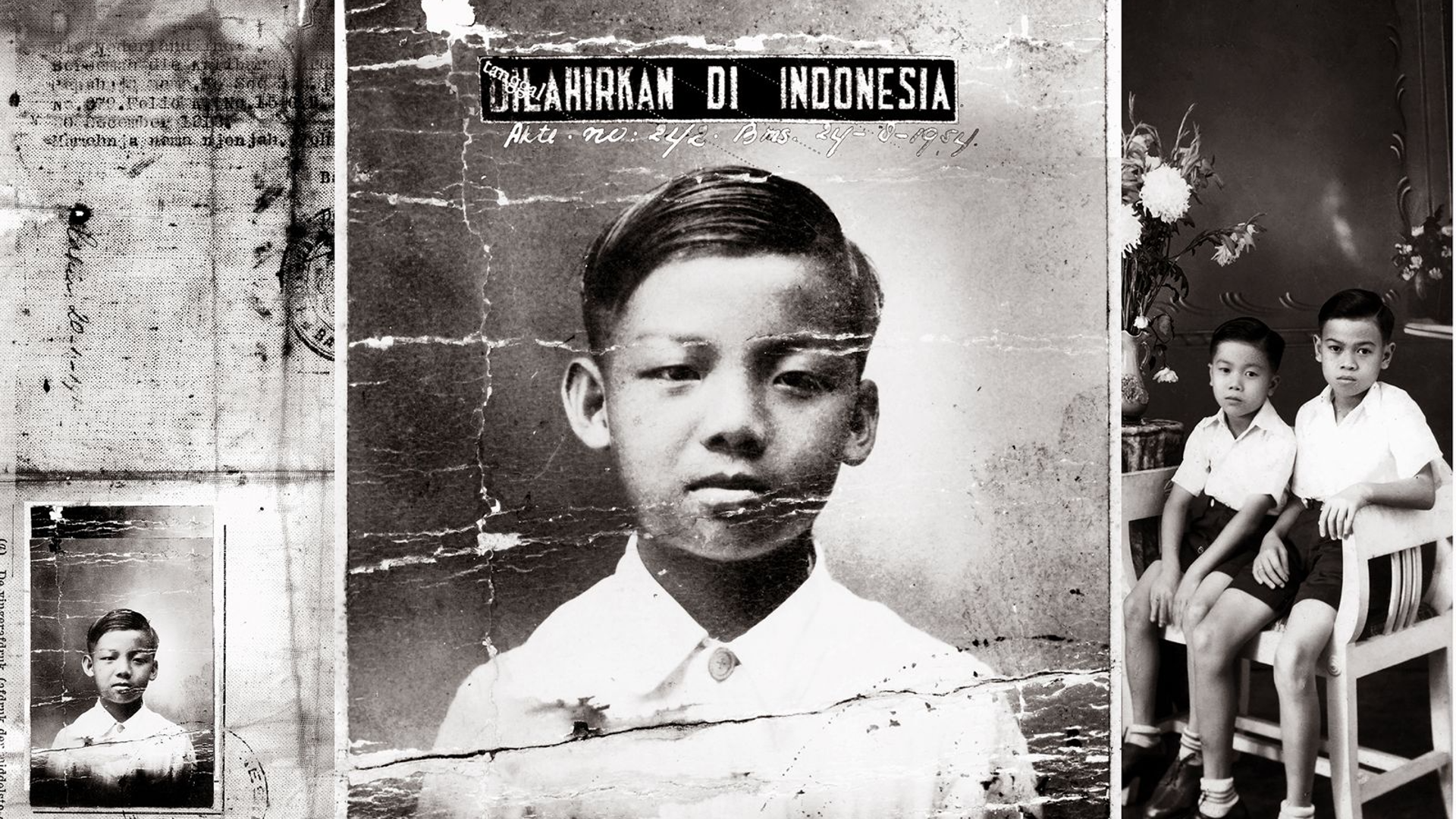“Trailblazers” is an inquiry into Egypt’s feminist history through socially engaged self-portraiture and performance, integrated with public archives to forge a counter-history. This work is deeply personal, stemming from my childhood experiences of Egyptian cinema during its Golden Age— a period marked by films adapted from controversial and often banned novels. These films presented strong female leads, contrasting sharply with the more conservative societal norms I observed in the 1990s. This dissonance sparked my curiosity about the largely unacknowledged feminist narratives in Egypt’s history— narratives absent from our educational systems yet pivotal to understanding our cultural fabric.
My focus on Egypt’s 1940s to 1960s isn’t coincidental. This era was not only the peak of Egyptian cinema but also a pivotal time in national history, witnessing the end of British occupation, the rise of Egypt’s first president, the tripartite aggression (Suez crisis), and significant milestones in women’s rights, including women earning the right to vote. My research delves into this transformative period, using various archival materials. These elements, along with mid-twentieth-century studio portraiture— notably the works of Armenian-Egyptian photographer Van Leo— serve as foundational references in my work.
In my self-portraits, I physically embody and perform the roles of these overlooked trailblazing icons, using my body as a canvas to inscribe and monumentalise their contributions. Through this act, I reclaim the dismissed stories of these women but also build a feminist archive that offers alternative narratives of female liberation.



